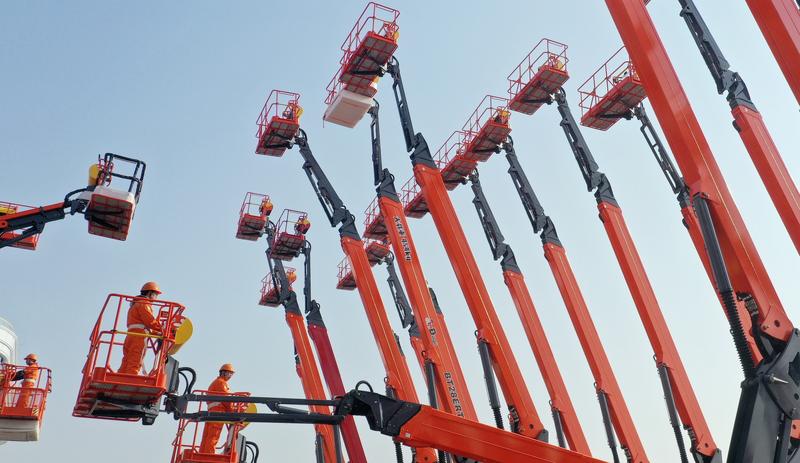Purchasing managers index rises for second straight month in December
 Workers at the production line of a machinery manufacturing company in Huzhou, Zhejiang province. (XIE SHANGGUO / XINHUA)
Workers at the production line of a machinery manufacturing company in Huzhou, Zhejiang province. (XIE SHANGGUO / XINHUA)
The pickup in China's manufacturing sector in December has raised more hopes that economic momentum may improve this year amid stronger policy support and abating cost pressure, experts said on Monday.
"Tax and fee cuts, the issuance of local government special bonds and supportive monetary and credit policies are poised to be ramped up at the beginning of the year," said Wen Bin, chief researcher at China Minsheng Bank.
"These measures, together with other cross-cyclical and countercyclical policy adjustments, will help keep the economy within a reasonable range," Wen said, adding that the Chinese economy has recovered steadily in December as the manufacturing sector picked up steam.
The official purchasing managers index rose for the second month in a row and came in at 50.3 in December, versus 50.1 in November, indicating an acceleration in manufacturing activity, the National Bureau of Statistics said on Friday.
A PMI reading above 50 points to expansion, while one below signals contraction.
Experts said the acceleration reflects improvements in supply and demand conditions of the Chinese economy-a positive trend that may sustain into this year amid stronger policy support.
On the supply side, the raw material cost subindex dropped to a 20-month low of 48.1 in December, compared with 52.9 a month earlier, indicating that the spike in commodity prices has lost momentum, thus alleviating cost pressures on businesses, according to the NBS.
The easing cost pressure has encouraged companies to boost inventories, with the raw materials stock subindex rising to 49.2, the highest level in more than three years, NBS data showed.
On the demand front, the bureau said the sub-gauge of new orders rose to 49.7 last month, versus 49.4 in November, thanks to improving market demand-especially in the sectors of medicine, automobiles and electronics.
"The PMI data for December signaled that economic conditions have begun to improve," said Li Qilin, chief economist at Shanghai-listed Hongta Securities.
The recovery may gather pace this year thanks to ramped-up policy support, easing cost pressure and resilient overseas demand, at least in the short term as slow vaccination rollouts have restricted supply capacity in some developing economies, Li said.
China has required pro-growth policies to be implemented early to counter downward economic pressures this year, with the country having allocated 1.46 trillion yuan ($230 billion) of the local government special bond quota for 2022 in advance to spur infrastructure investments.
Experts expect that more supportive measures may be launched soon, including larger tax and fee cuts compared with last year, policy aids to small businesses and perhaps more cuts in the reserve requirement ratio and the benchmark one-year interest rate.
Luo Zhiheng, chief macroeconomic analyst at Yuekai Securities, said the PMI reading may pick up as macro policy support strengthens, citing that infrastructure investment may particularly speed up with an annual growth of between 4 percent and 6 percent.
Yet some uncertainties may complicate the recovery. It remains to be seen whether buoyant exports will continue and to what extent domestic demand, including retail sales and the property market, will be stabilized, not to mention the lingering uncertainties posed by COVID-19, Luo said.
Despite the pickup in demand conditions last month, the subindex of new orders has remained in contraction territory. The PMI reading for small manufacturers also stayed below the 50-mark and came in at 46.5, down from 48.5 in November, pointing to weakening business prospects, according to the NBS.
"It is notable that the PMI for small manufacturers has dropped at a sharp slope, a trend that could heighten pressure for growth stabilization if it sustains," said Wen from China Minsheng Bank.


